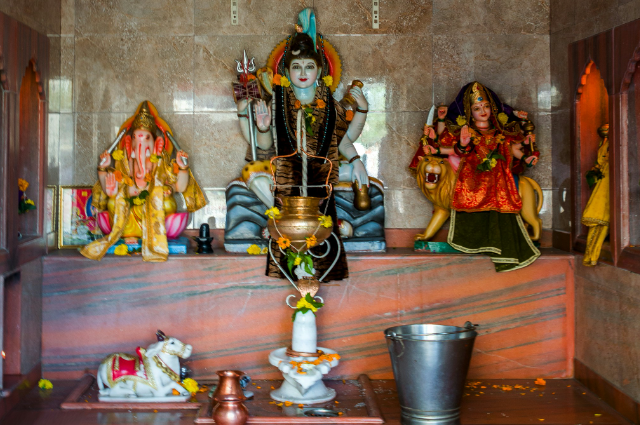
Photo by Sonika Agarwal on Unsplash
In Tamil Nadu, spirituality is deeply entwined with rituals. Every family has a family deity (kula deivam), and traditions passed down for generations dictate how each deity must be worshipped. These customs vary from family to family, and when a woman marries, she is expected to adopt her husband’s family deity and rituals, leaving behind those she has followed for over two decades.
But why is it that a woman’s spiritual identity is redefined after marriage, while a man continues worshipping as he always has? Why should traditions be imposed rather than being a matter of personal choice?
The Tradition of Family Deity: A Patriarchal Perspective
In most Tamil families, a bride is expected to leave behind her family deity and embrace her husband's family deity. If she has a son and daughter, the son’s wife will follow her son’s family deity, while the daughter will follow her husband's family deity after marriage. This practice is widely accepted, yet rarely questioned.
But shouldn't both spouses' family deities be treated equally? If marriage unites two families, then why does a woman have to abandon her own family deity? Spirituality is a personal journey, and it should not be dictated by patriarchal customs. A woman should have the freedom to worship both her and her husband’s family deity without feeling like she has abandoned her roots.
Rituals: Tradition or Imposition?
Religious rituals are another aspect where women bear the heavier burden. After marriage, a woman is often required to follow her husband's family traditions, even if they differ from what she practiced for years. Some of these rituals involve specific ways of cooking, pooja arrangements, fasting, and other customs.
But the reality is, it is the woman who does most of the work in these rituals.
- She washes the vessels used for the pooja.
- She prepares the prasad and arranges the pooja room.
- She follows the ritual procedures dictated by her in-laws.
Since she is the one putting in all the effort, shouldn't she have the freedom to decide whether to follow these rituals, mix both traditions or follow her own way? Instead of forcing her into customs, she may not relate to, her spiritual practices should be based on her beliefs, not societal expectations.
Spirituality Should Be a Personal Choice
Rituals and traditions should never be about control. They should be about faith, respect, and personal connection with God. Women should not be expected to:
- Abandon their family deity after marriage.
- Rigidly follow rituals that do not resonate with them.
- Bear the entire responsibility of religious customs in a household.
Instead, families should encourage freedom of worship. Just as men continue their spiritual journey unchanged after marriage, women should also have the right to practice their own beliefs without restriction.
Spirituality is about devotion, connection, and inner peace—not about enforcing outdated traditions on women. Every individual should have the right to worship in a way that is meaningful to them. If rituals bring peace, let them follow them. If they want to worship both family deities, they should be free to do so. And most importantly, if they choose a simpler, more personal path to spirituality, that choice should be respected too.
